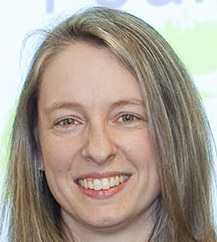
Watch Dr Lisa Gillinder accept her research grant and hear a bit about the project.
Watch Dr Lisa Gillinder explain more about the research she is doing as a result of the funding provided by the Brain Foundation.
PROJECT SUMMARY:
Epilepsy affects more than 250,000 Australians, with many of these being refractory to conventional therapies. This is a very costly condition to treat and it causes significant psychosocial burden. Our current research into a unique epilepsy subgroup which are refractory to conventional therapies is addressing this important health issue. This study will define the clinical phenotype associated with neuronal autoantibodies in chronic refractory epilepsy. This involves a multimodality approach to diagnosis that will test the hypothesis that these antibodies are associated with a definable clinical phenotype, which can be used to generate diagnostic criteria similar to what exists for autoimmune encephalitis. Patients will undergo thorough clinical evaluation guided by the stereo-electroencephalography methodology aimed at localisation of the epileptogenic zone. This involves evaluation of seizure semiology, epilepsy risk factors, medical background, neuropsychiatric and neuropsychological assessments. Prolonged electroencephalographic (EEG) recordings will be used to define the electroclinical features of these epilepsies and advanced neuroimaging techniques will be used to evaluate for inflammatory abnormalities in these cases. Our pilot study found that these antibodies are associated with perisylvian network epilepsies, as defined by seizure semiology and unique EEG changes. We also found an association with certain epilepsy risk factors, and a very high prevalence of mental health disorders in this population. Most importantly, we demonstrated a clear response to immunotherapy, with many of these refractory patients becoming seizure free. If our hypothesis is correct and we can confirm our preliminary findings in a large cohort, this will change the clinical approach to chronic epilepsy. Once these patients are clinically recognisable as a distinct subgroup they can be more easily identified and will therefore receive more appropriate treatment. This will also lead directly to randomised trials to determine which immunotherapies are most effective. This would have health-cost savings and will result in an effective cure for this subgroup of epilepsy, which currently have limited treatment options available.
Click to read Progress Report from Oct 2019 – 12 month progress
Click to read Progress Report from Dec 2020
Click to read Progress Report from July 2022



 The Brain Foundation is the largest, independent funder of brain and spinal injury research in Australia. We believe research is the pathway to recovery.
The Brain Foundation is the largest, independent funder of brain and spinal injury research in Australia. We believe research is the pathway to recovery.